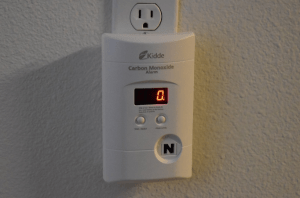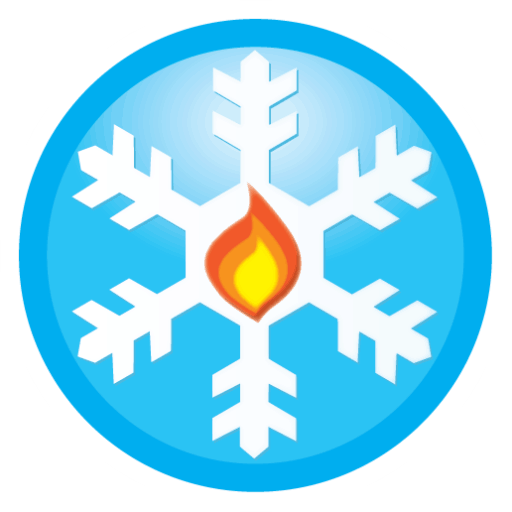Bigger’s always better, right? Well, not when it comes to your heating and cooling system. An oversized heater will do much more harm than good. And, no, it won’t even make your house warmer.
In fact, the opposite often occurs: You end up chilly more often. And that’s just the tip of the iceberg when it comes to the problems you can face.
And, we’re sorry to say, but it’s a way more widespread problem than it should be.
Chalk it up to lousy craftsmanship, or slippery salespeople, or just plain ignorance, but we encounter more homes with oversized heaters than we should. To make matters worse, there’s no simple solution to the problem.
You’re probably here because you already suspect that this is the problem in your home. Or, maybe you’ve noticed one of the symptoms we’ve outlined below, and your Google search brought you here.
No matter how you arrived, we’re here to help! We know the ins and outs of Treasure Valley homes, from the oldest cabins in Cascade and Donnelly to the newest construction in Caldwell and Boise.
In this article, we’ll go over:
- Three Reasons An Oversized Heater Is A Bad Idea
- How Do Homes End Up With Oversized Heaters?
- What To Do When Your Heater Is Too Big For The House
- How To Make Sure Your New Heater Is The Right Size
If you’re not from our area, read on anyway! The facts are the same no matter where you live. If you’re in Valley County or the Boise, ID area, call or email us for an appointment for a free consultation. You can reach us at (208) 205-9078. Or, click the button below.
Three Reasons An Oversized Heater Is A Bad Idea
- Your Home Won’t Stay Warm
- Your System Will Break Down Sooner
- You May End Up With A Carbon Monoxide Leak
Your Home Won’t Stay Warm
You’d think that a bigger heater would make your home too warm if anything. But, the opposite is true, and that’s because of how these systems work.
A heater runs for 10 to 15 minutes at a time. Then it turns off until your home starts cooling down again. It usually goes on and off three or four times an hour. And those long cycles are essential.
You need the heater to run that long to circulate all that warm air. Otherwise, it will cool down much quicker. And, the upstairs rooms will never get the heat they need.
An oversized furnace pushes too much warm air at once. It hits the thermostat, which registers the sudden rise in temperature. It seems like the house is warm enough, so the thermostat turns the heater back off right away.
But, there’s not enough heat in the air to sustain the temperature. So, the heater clicks back on in another minute. Then it turns back off again. Those quick spurts aren’t enough to keep you comfortable.
Your System Will Break Down Sooner
We say your furnace is “short-cycling” when it turns on and off again every few minutes. It’s no good for the system because it’s not designed to keep starting and stopping like that.
You end up with a lot of extra wear and tear on your system as a result. That means you start having problems with the system. Parts break down, and the heater stops working.
You end up calling more often for repairs. And, you won’t get as many years out of the system as you should.
You May End Up With A Carbon Monoxide Leak
 One common problem with an oversized furnace is a cracked heat exchanger. When that happens, you need a new furnace because there’s no way to fix it.
One common problem with an oversized furnace is a cracked heat exchanger. When that happens, you need a new furnace because there’s no way to fix it.
When a unit short-cycles, the unit can overheat. Even though it generates a lot of warmth, it’s not supposed to store that warmth — only push it out. As a failsafe, the system will send a blast of cold air to cool down the components.
But, too many of those sudden temperature swings stress the exchanger and cause it to crack. When that happens, carbon monoxide,can leak out. You may not even notice this until you get your heater tuned up and the tech mentions it.
How Do Homes End Up With Oversized Heaters?
We can’t speak for every oversized heater in Idaho, but we know two big reasons why people end up with these in their homes.
The first is that an HVAC tech didn’t do the right load calculation. They thought your home was bigger than it was or that it needed more BTUs to keep it warm. The result is a system that’s way too strong.
The other could be a bad (or dishonest) salesperson. If they’re looking for the biggest buck possible, they’ll try to sell you on a bigger, more expensive system. But, as we’ve seen here, that doesn’t work out.
And, the same goes for your central air. If you’re replacing your heater and AC at the same time, make sure you’re right-sized for year-round comfort.
What To Do When Your Heater Is Too Big For The House
The bad news is you don’t really have a lot of options with an oversized heater. Most times, you just have to replace it.
The majority of heaters are single-stage. That means they only turn on and off. There’s no way to adjust the power or level.
In some cases, we can extend the ductwork and add extra vents. This way, you lose pressure along the way. When that happens, the airflow is not so strong that it causes the system to short-cycle.
But that’s an expensive option. And, you may put yourself in a bad position when you’re ready to buy a new heater that’s the right size for your home. Suddenly, those extra ducts and vents are too much.
How To Make Sure Your New Heater Is The Right Size
The best way to make sure you get a heater that’s the right size for your home is to use an HVAC contractor with an excellent reputation. And, make sure they do a load calculation for your home, even if they are replacing an existing unit.
The load calculation considers the size of your home and its layout: How many rooms you have and if there are lots of open spaces. It also factors in windows, which parts of the house get the most sun, how much insulation you have, and more.
Furnace Installation In Boise, ID
As you can see, there’s a lot to consider. But, you don’t have to worry about it all yourself! Instead, call Snowflake Air at (208) 205-9078 for a free consultation about furnce installation in your Boise, ID home or any other HVAC concerns. We’ll help you determine if you have an oversized heater in your Treasure Valley home. And if you do, we’ll help you find the best replacement for it.



